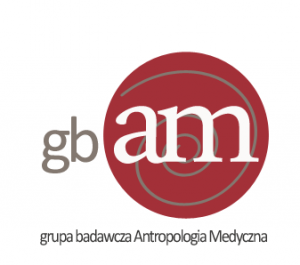Research groups and boards
CENTRE OF MIGRATION STUDIES
The Department also hosts the Centre for Migration Studies, an interdisciplinary research centre established at the Adam Mickiewicz University in Poznan in 2009. The Centre focuses on researching migration and migrant’s integration processes in Western regions of Poland. We conduct projects financed by European Union and cooperate with other academic institutions concerned with migration studies, e.g. the Institute for the Study of International Migration at Georgetown University,Washington DC. For the Centre’s activities see: http://cebam.amu.edu.pl/en/.
Researchers:
- Prof Michał Buchowski
- Prof Aleksander Posern-Zieliński
- Dr Natalia Bloch
- Dr Agnieszka Chwieduk
- Dr Izabella Main
- Dr Jacek Schmidt
 The Research Group „Medical Anthropology”
The Research Group „Medical Anthropology”
The Research Group „Medical Anthropology” (the Polish acronym is GBAM) has been active in the Department of Anthropology and Ethnology at the Adam Mickiewicz University in Poznan since February 1, 2017. It was officially established by the Director of the Department; however, the emergence of the Research Group finalised an earlier collaboration between researchers interested in medical anthropology. The Research Group is headed by Danuta Penkala-Gawęcka. Its members include: Zofia Boni, Agnieszka Chwieduk and Izabella Main. Małgorzata Rajtar and Anna Witeska-Młynarczyk are permanent collaborators. The establishment of the Research Group highlighted the importance of medical anthropology within anthropological research and teaching in Poland as well as contributed to more intense exchange of ideas and coordination of the activities in this field at the Department. The GBAM organise seminars featuring presentations by Polish and foreign medical anthropologists as well as representatives of other disciplines interested in health, illness and medicine. Among recent achievements, there is a special issue of the journal „Ethnologia Polona” (vol. 40: 2019) focusing on medical anthropology: http://journals.iaepan.pl/index.php/ethp/index
List of seminars
Changes in fertility pattern in Poland and underlying factors – Prof. Maria Kaczmarek (Department of Anthropology, Adam Mickiewicz University in Poznań), 12.12.2016.
Myths in medicine – Prof. Jaromir Jeszke (Faculty of Education and Arts, Adam Mickiewicz University, Kalisz), 27.02.2017.
Myths and medicines – Prof. Anita Magowska (Chair of History of Medicine, Medical University in Poznań), 22.05.2017.
Gender trouble? On chromosomes, femininity, and Turner Syndrome in an ethnographic perspective – Prof. Magdalena Radkowska-Walkowicz (Department of Ethnology and Cultural Anthropology, Warsaw University), 11.12.2017.
Between heterogeneity and stabilisation. ADHD in a medical practice – Dr Michał Wróblewski (Department of Philosophy, Mikołaj Kopernik University in Toruń), 19.03.2018.
Functional and medical food. From the research in medical ethnobotany in Argentina and Peru – Dr Monika Kujawska (Department of Ethnology and Cultural Anthropology, Lodz University), 4.06.2018.
HIV-trajectories: Living of marginalized people from Poland with HIV/AIDS and their access to health care and social welfare in Berlin – Dr Paweł Lewicki (Europa-Universität Viadrina Frankfurt/Oder), 14.01.2019.
Ethical issues in biomedical research: an example of patients’ electronic health records – Dr Jan Piasecki (Faculty of Health Sciences, Collegium Medicum, Jagiellonian University), 25.03.2019.
Care homes for Germans in Poland: of what is this a case? Preliminary readings of an emergent phenomenon – Dr Kristine Krause, Mariusz Sapieha, Luise Schurian (University of Amsterdam), 27.05.2019.
Temporal experience during ovarian cancer treatment – Prof. Marcin Moskalewicz (Chair of Social Sciences and Humanities, Medical University in Poznań), 12.11.2019.
Members
Danuta Penkala-Gawęcka, PhD, Dr habil., head of the Research Group on Medical Anthropology. She studies relations between biomedicine and complementary medicine; perceptions of health and illness and health-seeking strategies in the context of medical pluralism in Central Asia, especially Kazakhstan and Kyrgyzstan. Her research in Kyrgyzstan was funded by the National Science Centre in Poland. She is also interested in theoretical and methodological issues and medical anthropology as an applied discipline.
Zofia Boni, PhD, is currently conducting research on the social dynamics of childhood obesity in Poland. The research is funded by the National Science Centre in Poland. Her interests, besides medical anthropology, concern anthropology of food, anthropology of childhood, and critical nutrition studies.
Agnieszka Chwieduk, PhD, Dr habil., is interested in psychiatrical anthropology as well as studies on ethnicity and identity. She carries out research in Detention Centres for Foreigners in Poland and focuses on trauma connected with intercultural contact and on the system of psychological and psychiatric healthcare.
Izabella Main, PhD, Dr habil., studies health and migration within the European context. In particular, she is interested in examining access to healthcare services as well as changes in attitudes and practices regarding health, illness, and treatment. She currently conducts research funded by the Research Council of Norway on the situation of Polish nurses in Norway. She published a book entitled Lepsze światy medyczne. Zdrowie, choroba i leczenie polskich migrantek w perspektywie antropologicznej [Better Medical Landscapes. Health, Illness, and Treatment of Polish Female Migrants. An Anthropological Perspective] (2018).
Małgorzata Rajtar, PhD, Dr habil., is a collaborator of the Research Group on Medical Anthropology and Professor in the Institute of Philosophy and Sociology, Polish Academy of Sciences. She carries out medical anthropology research with a special focus on biomedicine; medicine and religion; rare diseases; bioidentity, and ethics. She is the PI of two research grants on rare disorders in the Baltic Sea region funded by the National Science Centre in Poland. She was also a main researcher in a grant on Turner Syndrome (PI: Dr habil. Magdalena Radkowska-Walkowicz, University of Warsaw).
Anna Witeska-Młynarczyk, PhD, is a collaborator of the Research Group on Medical Anthropology her field of interest is in the anthropology of child and youth psychiatry. She published an edited volume of collected texts titled Anthropology of Child and Youth Psychiatry. An Anthology (2018) and a book Children’s Experiences of ADHD (2019). She is a researcher in a grant on adoption as seen from the anthropological perspective, financed by the National Science Centre (PI: Dr Ewa Maciejewska-Mroczek, University of Warsaw).
M4SHALEGAS
The accelerated development of shale gas is accompanied by growing public concern regarding the safety of shale gas extraction and its impact on human health and the environment. For the US, shale gas exploitation proved very successful in changing the energy landscape in terms of security of domestic supply and increased contribution of gas in the energy mix. For Europe, shale gas exploitation could increase our resources and production of natural gas; a critical fuel for the transition to a low carbon energy system. However, there are a number of important gaps in our present understanding of shale gas exploration and exploitation, and a strong need for independent, science-based knowledge of its potential impacts in a European context. The M4ShaleGas program focuses on reviewing and improving existing best practices and innovative technologies for measuring, monitoring, mitigating and managing the environmental impact of shale gas exploration and exploitation in Europe. The technical and social research activities will yield integrated scientific recommendations for 1) how to minimize environmental risks to the subsurface, surface
and atmosphere, 2) propose risk reduction and mitigation measures and 3) how to address the public attitude towards shale gas development. The 18 research institutes from 10 European Union Member States that collaborate in the M4ShaleGas consortium cover different geopolitical regions in Europe, including Member States that are at the forefront regarding shale gas exploration and exploitation in Europe as well as Member States where shale gas exploitation is not yet being actively pursued. The project governance ensures proper integration of all research activities. Knowledge and experience on best practices is imbedded by direct collaboration with US and Canadian research partners and input from representatives from the industry. During the project, results will be public and actively disseminated to all stakeholders. Project is financed by the European Commission within the Horizon2020 program (2,999,649 Euro). Project duration is 2015-2018. Coordination: Aleksandra Lis.

